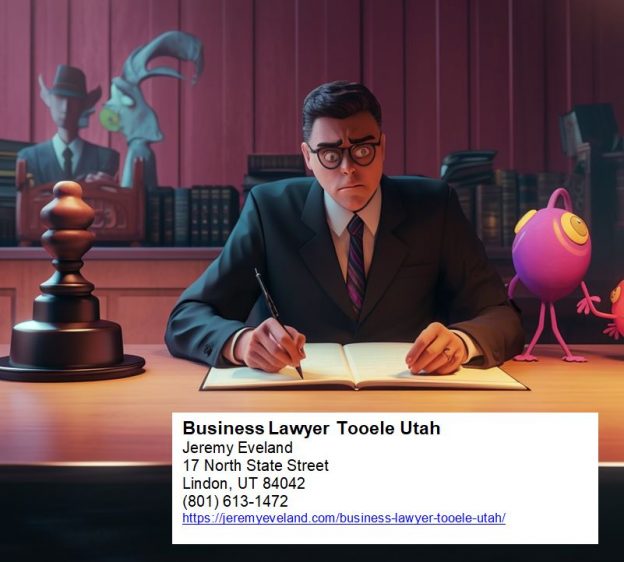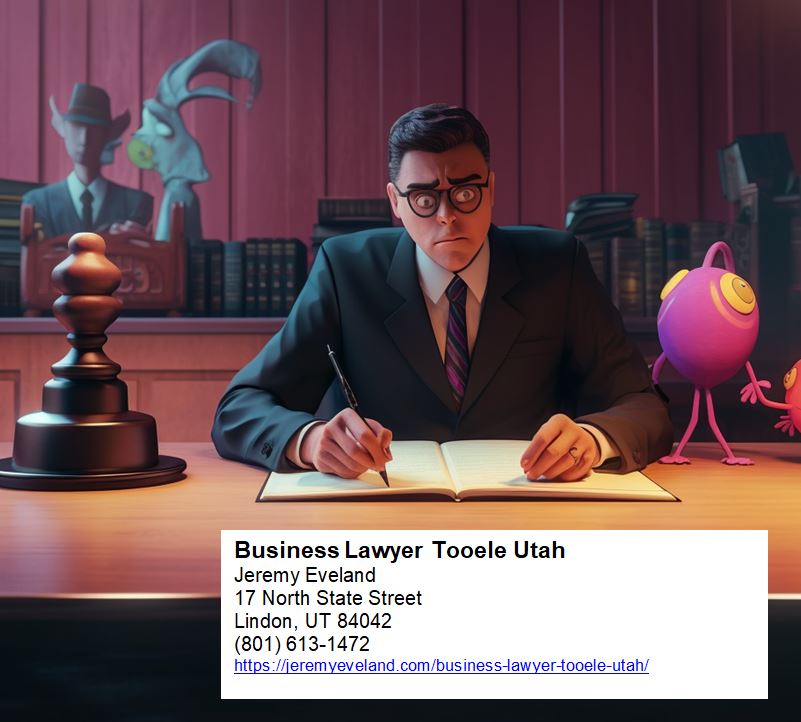When it comes to navigating the complexities of divorce, having a solid understanding of the no-fault divorce laws in your state can be a game-changer. Whether you’re considering ending your marriage or simply want to be informed about your rights and options, this article will provide you with all the essential information you need. From the basics of what a no-fault divorce entails to the specific regulations and requirements in your state, we’ve got you covered. With clear guidance, reassurance, and helpful insights, we aim to empower you to make informed decisions and take the next steps towards resolving your divorce with confidence. So, let’s dive in and unravel the intricacies of no-fault divorce laws in your state.
What is No-Fault Divorce?
No-fault divorce is a type of divorce where a spouse does not have to prove that the other spouse did something wrong in order to obtain a divorce. In a traditional fault-based divorce, one party must provide evidence of adultery, abuse, abandonment, or other grounds for divorce. However, with a no-fault divorce, the only requirement is that the marriage has irretrievably broken down. This means that the spouses no longer get along and there is no possibility of reconciliation.
Definition of No-Fault Divorce
No-fault divorce is a legal process that allows couples to end their marriage without having to prove any wrongdoing by either party. It focuses on the irretrievable breakdown of the marriage rather than assigning blame or fault. In essence, it recognizes that marriages can break down for various reasons, and the focus should be on the practical aspects of ending the relationship rather than assigning blame.
Key Features of No-Fault Divorce
The key features of a no-fault divorce include the absence of any requirement to prove fault or wrongdoing by either party. It allows couples to divorce based on the fact that their marriage has irretrievably broken down. Additionally, no mutual consent is required for a no-fault divorce, meaning that one party can seek a divorce even if the other party does not want to end the marriage.
Purpose of No-Fault Divorce Laws
The purpose of no-fault divorce laws is to simplify and streamline the divorce process. By removing the need to prove fault or wrongdoing, couples can more easily and quickly dissolve their marriage. No-fault divorce laws also aim to reduce conflict between the spouses, as there is no requirement to assign blame. The focus is on moving forward and resolving practical matters such as child custody, division of assets, and spousal support.
Understanding the Grounds for No-Fault Divorce
Irretrievable Breakdown of Marriage
The primary ground for a no-fault divorce is the irretrievable breakdown of the marriage. This means that the marriage has reached a point where there is no chance of reconciliation and the spouses no longer get along. It is important to note that the definition of irretrievable breakdown may vary slightly depending on the jurisdiction.
No Mutual Consent Required
In a no-fault divorce, no mutual consent is required. This means that one spouse can seek a divorce even if the other spouse does not want to end the marriage. In some cases, this can lead to contested divorces where the couple disagrees on the terms of the divorce. However, even in a no-fault divorce, both parties still have the right to respond to the divorce petition and present their arguments in court.
Separation as Grounds
Some states allow separation as a grounds for no-fault divorce. In these cases, the couple must live apart for a specified period of time, typically several months to a year, before they can file for divorce. The purpose of this requirement is to give the couple time to reassess their relationship and determine if divorce is the best option.
Incompatibility as Grounds
Incompatibility is another ground for no-fault divorce in some jurisdictions. It refers to the inability of the spouses to live together harmoniously due to fundamental differences in their values, beliefs, or lifestyles. Incompatibility as a ground for divorce focuses on the fact that the couple is no longer compatible as a married couple, rather than assigning blame to either spouse.
Jurisdiction and Residency Requirements
State-Specific Jurisdiction
The jurisdiction for filing a no-fault divorce varies from state to state. In general, the divorce should be filed in the state where either spouse meets the residency requirements. Each state has different rules regarding jurisdiction, so it is important to consult with an attorney or research the specific requirements of your state.
Minimum Residency Period
Most states have a minimum residency period that must be met before a spouse can file for divorce. This period of residency can range from a few weeks to several months or even a year. It is important to note that the residency period is typically calculated from the date of physical presence within the state, rather than the date of legal residence or domicile.
Exceptions and Considerations
There may be exceptions and considerations to the jurisdiction and residency requirements in certain cases. For example, military personnel may have specific rules that apply to them if they are stationed outside of their home state. Additionally, some states recognize the concept of “long-arm jurisdiction,” which allows a state to assert jurisdiction over a divorce if one spouse has sufficient contacts with the state, even if they do not meet the traditional residency requirements.
The Divorce Process in No-Fault Divorce States
Filing the Petition for Divorce
The first step in the no-fault divorce process is filing the petition for divorce with the appropriate court. The petition outlines the grounds for divorce and may include other requests such as child custody, spousal support, and division of assets.
Serving the Divorce Papers
After the petition is filed, the other spouse must be served with the divorce papers. This involves providing them with a copy of the petition and any other relevant documents. Service can be done through a process server, certified mail, or other approved methods depending on the jurisdiction.
Response from the Other Spouse
Once the other spouse has been served, they have a certain amount of time to respond to the divorce petition. This typically ranges from a few weeks to a month, but can vary depending on the jurisdiction. The response may include counterclaims or requests for specific terms of the divorce.
Negotiations and Mediation
After both parties have filed their initial pleadings, negotiations and mediation may occur to reach a settlement agreement. This involves both spouses working together, with the assistance of their attorneys if desired, to determine the terms of the divorce. This can include child custody arrangements, division of assets, and spousal support.
Court Hearings and Trial
If a settlement cannot be reached through negotiations and mediation, the case may proceed to court hearings or trial. During these proceedings, both parties present their arguments and evidence to the judge, who will make decisions on the unresolved issues. It is important to note that not all divorces go to trial, and many can be resolved through negotiation or alternative dispute resolution methods.
Finalizing the Divorce
Once all issues have been resolved and the court has issued a final judgment, the divorce is finalized. This means that the marriage is legally dissolved and the terms of the divorce, such as child custody and support, division of assets, and spousal support, are officially determined.
Child Custody and Support in No-Fault Divorce
Child Custody Determination
In a no-fault divorce, child custody is determined based on the best interests of the child. The court will consider factors such as the child’s relationship with each parent, the child’s wishes (if they are old enough to express them), and the ability of each parent to meet the child’s needs. Shared custody arrangements are often favored, as they allow both parents to maintain a meaningful relationship with the child.
Factors Affecting Child Custody
Various factors can affect child custody determinations in a no-fault divorce. These may include the child’s age and gender, the mental and physical health of each parent, the parent’s ability to provide a stable home environment, and any history of abuse or neglect. The court will strive to make decisions that are in the best interests of the child and promote their overall well-being.
Child Support Obligations
Child support is typically determined based on state guidelines that take into account factors such as the income of both parents, the number of children, and the parenting time each parent has with the child. The purpose of child support is to ensure that the child’s financial needs are met, regardless of which parent they reside with.
Calculation of Child Support
The calculation of child support can be complex and may require the input of financial records and other relevant information. Each state has its own guidelines and formulas for calculating child support, so it is important to consult with an attorney or utilize online resources specific to your state to determine the appropriate amount.
Modifications and Enforcement
Child custody and support orders may be modified or enforced if there is a significant change in circumstances. For example, if one parent experiences a substantial increase or decrease in income, or if the child’s needs change, a modification may be requested. Enforcement actions can be taken if one parent fails to comply with the terms of the child custody or support order, such as failing to make the required payments.
Division of Marital Assets and Debts
Equitable Distribution vs. Community Property
In the division of marital assets and debts, there are two main approaches: equitable distribution and community property. Equitable distribution is used in the majority of states and involves the court dividing the assets and debts in a fair and equitable manner. Community property states, on the other hand, follow the principle that all assets and debts acquired during the marriage are considered jointly owned and are divided equally.
Identifying and Classifying Marital Assets
The first step in the division of marital assets is to identify and classify them. Marital assets are typically those acquired during the marriage, while separate assets are those acquired prior to the marriage or through inheritance or gift. It is important to gather all relevant financial documents, such as bank statements, tax returns, and property deeds, to determine which assets are subject to division.
Valuation of Marital Assets
Once the assets have been identified, they must be valued for the purpose of division. This can involve obtaining professional appraisals for real estate or business assets, as well as determining the current value of investment accounts, retirement savings, and other financial assets. The valuation process can be complex and may require the assistance of financial experts.
Debts and Liability Allocation
In addition to dividing assets, the court will also allocate the marital debts between the spouses. This may include mortgages, credit card debt, student loans, and other liabilities. The court will consider factors such as who incurred the debt and who benefited from it when determining how to allocate the liabilities.
Challenges and Disputes
The division of marital assets and debts can often be a contentious issue in divorce cases. Disputes may arise over the value of certain assets, the classification of assets as marital or separate, or the fairness of the overall division. It is important to work with an attorney who can advocate for your interests and help negotiate a fair resolution.
Spousal Support or Alimony
Types of Spousal Support
Spousal support, also known as alimony, is financial support paid by one spouse to the other after a divorce. There are several types of spousal support, including temporary support, rehabilitative support, and permanent support. Temporary support is paid during the divorce process, while rehabilitative support is intended to help the recipient become self-sufficient. Permanent support may be awarded in long-term marriages where one spouse is financially dependent on the other.
Determining Eligibility for Spousal Support
Eligibility for spousal support is determined based on various factors, including the length of the marriage, the financial resources and earning capacity of each spouse, and any contributions made by one spouse to the education or career of the other. The court will consider these factors to determine if spousal support is warranted and, if so, the amount and duration of the support.
Calculating Spousal Support Amount
The calculation of spousal support amounts varies by jurisdiction. Some states have specific formulas or guidelines that are used to calculate the amount, while others give judges more discretion to determine a fair and reasonable amount based on the specific circumstances of the case. Factors that may be considered include the income and earning potential of each spouse, the standard of living during the marriage, and the financial needs of both parties.
Modifications and Termination
Spousal support orders may be modified or terminated if there is a significant change in circumstances. For example, if the recipient spouse remarries or if the paying spouse experiences a substantial decrease in income, a modification may be requested. In some cases, spousal support may be terminated if the recipient spouse becomes self-sufficient or if the agreed-upon duration of support ends.
Legal Representation in No-Fault Divorce Cases
Importance of Legal Counsel
While it is possible to navigate a no-fault divorce without legal representation, it is generally advisable to consult with an attorney. Divorce can be a complex and emotionally challenging process, and having an experienced advocate on your side can provide valuable guidance and support. An attorney can help protect your rights, ensure that your interests are represented, and help you navigate the legal process more smoothly.
Hiring a Divorce Attorney
When hiring a divorce attorney, it is important to find someone who specializes in family law and has experience with no-fault divorce cases. You should feel comfortable with your attorney, as you will be working closely with them throughout the divorce process. Consider scheduling consultations with multiple attorneys to find the one who best meets your needs and has a good understanding of the laws in your jurisdiction.
Attorney’s Role in the Divorce Process
An attorney plays a crucial role in the no-fault divorce process. They will guide you through each step, from filing the initial petition to finalizing the divorce. Your attorney will help you understand your rights and responsibilities, negotiate on your behalf, and represent you in court if necessary. They will also provide advice and support during negotiations, mediation, and other settlement discussions.
Benefits of Professional Guidance
Having professional guidance from an attorney can provide several benefits during a no-fault divorce. They can help you avoid common pitfalls, ensure that all necessary paperwork is filed correctly and on time, and provide objective advice based on their legal expertise. Additionally, an attorney can help protect your rights and interests, especially when it comes to issues such as child custody, support, and division of assets.
Alternative Dispute Resolution Methods
Mediation
Mediation is a popular alternative dispute resolution method used in divorce cases. It involves a neutral third party, known as a mediator, who facilitates communication and negotiation between the spouses. The goal of mediation is to reach a mutually acceptable agreement on all issues, including child custody, support, and division of assets. Mediation can be a more amicable and cost-effective solution compared to traditional litigation.
Collaborative Divorce
Collaborative divorce is another alternative dispute resolution method that focuses on cooperative problem-solving. In a collaborative divorce, both spouses and their attorneys sign an agreement to work together to reach a settlement without going to court. This process often involves the use of other professionals, such as financial experts or child specialists, to help resolve any conflicts or concerns.
Arbitration
Arbitration is a private and binding alternative to the traditional court process. In arbitration, a neutral third party, known as an arbitrator, reviews the evidence and arguments presented by both spouses and makes a final decision on the unresolved issues. While arbitration is similar to a court trial, it allows for more flexibility and confidentiality. The decision of the arbitrator is typically binding and can only be appealed under limited circumstances.
Pros and Cons of Alternative Methods
There are pros and cons to alternative dispute resolution methods in no-fault divorce cases. The main advantage is that they can often lead to faster outcomes and more amicable resolutions. They also tend to be less adversarial and costly compared to traditional litigation. However, alternative methods may not be suitable for all cases, especially those involving high conflict or complex legal issues. It is important to consult with an attorney to determine the best approach for your specific situation.
FAQs About No-Fault Divorce Laws
What is the difference between fault and no-fault divorce?
The main difference between fault and no-fault divorce is the requirement to prove fault or wrongdoing. In a fault-based divorce, one party must provide evidence of adultery, abuse, abandonment, or other specific grounds for divorce. In a no-fault divorce, the only requirement is that the marriage has irretrievably broken down and the spouses no longer get along. No-fault divorce focuses on ending the relationship without assigning blame.
How long does a no-fault divorce take?
The duration of a no-fault divorce can vary depending on various factors, such as the complexity of the case, the number of unresolved issues, and the backlog of cases in the court system. In general, a no-fault divorce can take several months to a year or more to complete. However, couples who are able to reach a settlement agreement through negotiation or mediation may experience a shorter and more streamlined process.
Can I file for a no-fault divorce without an attorney?
While it is possible to file for a no-fault divorce without an attorney, it is generally advisable to seek legal counsel. Divorce can be a complex and emotionally challenging process, and having an experienced attorney on your side can provide valuable guidance and support. An attorney can help protect your rights, ensure that all necessary paperwork is filed correctly, and advocate for your interests throughout the divorce process.
















